The report focused on clarifying the political basis and positive impacts of the draft law, while explaining key policy groups such as special loans, seizure of collateral, and legalization of Resolution 42/2017/QH14. In a receptive spirit, the Government proposed adjustments so that the law takes effect from August 1, 2025, meeting the requirements of national development, ensuring the safety of the financial system and social order.
Governor of the State Bank of Vietnam Nguyen Thi Hong emphasized that the Government has directed the presiding agency to review and comprehensively study the difficulties and shortcomings in the operations of credit institutions to amend and supplement the content, ensuring more effective operations and limiting bad debt. These amendments also aim to respond to the direction of General Secretary To Lam at the opening session of the National Assembly , institutionalize the Resolution of the 10th Central Conference of the 13th tenure, and meet the requirements of national development in the new era. The viewpoint is clearly stated as to learn from experience while doing, not to be hasty but also not to be perfectionist to avoid missing opportunities.
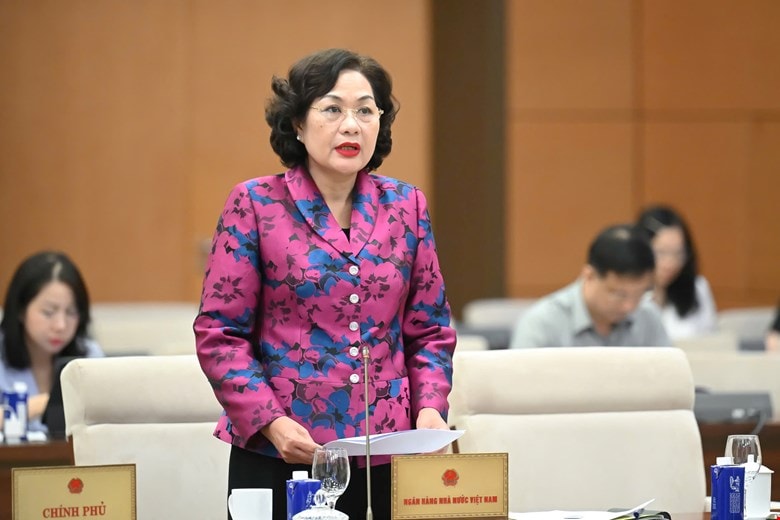
Review of regulations on special loans with 0% interest rate per year
Accordingly, regarding the policy group transferring the authority to decide on special loans of the State Bank with an interest rate of 0%/year, without collateral, Governor Nguyen Thi Hong said that the purpose of the central bank in issuing money is not to use resources from the state budget. Therefore, the State Bank's special loans with an interest rate of 0%/year do not lead to the risk that the state budget has to compensate for the interest. However, accepting the opinions of National Assembly deputies, the Government has directed the presiding agency to coordinate with relevant agencies to review the regulations on handling special loans of the State Bank according to the financial regime of this bank.
“The special lending of the State Bank is only applicable in two cases: One is when a credit institution is subject to a mass withdrawal to pay depositors, and the other is to implement a recovery plan or a compulsory transfer plan of credit institutions under special control. This activity is only carried out after applying operational measures such as recapitalization and open market operations. Thus, special lending is necessary to prevent mass withdrawals at credit institutions, limit the risk of spreading to other institutions, or support recovery plans or compulsory transfer plans to restructure credit institutions under special control. The goal is to ensure the safety of the credit institution system, security and order, and social safety, not to create a competitive advantage for credit institutions that receive special loans from the State Bank,” the Governor said.
The Governor also emphasized that Clause 3, Article 194 of the Law on Credit Institutions 2024 assigned the Governor of the State Bank to specify the details of special loans. To implement this regulation, the Governor issued Circular No. 37/2024/TT-NHNN dated June 30, 2024, specifying the purpose, amount, term, collateral, conditions of collateral, loan repayment and responsibilities of related parties.
However, taking into account the opinions of National Assembly deputies, after the draft law is promulgated, the State Bank will study, review and amend Circular No. 37/2024/TT-NHNN related to criteria and conditions for special loans with an interest rate of 0%/year, no collateral, purpose of loan use, responsibilities of the borrowing unit and responsibilities of the State Bank when lending, controlling money sources to avoid risks and avoid policy abuse. This is to reduce the pressure on internal restructuring of banks, increase transparency in lending procedures and processes, while strengthening control, preventing and limiting possible losses, avoiding moral risks, policy risks and side effects, ensuring market confidence and fairness.
Regarding the transitional provisions, Governor Nguyen Thi Hong said that the Government has accepted the opinions of National Assembly deputies and the inspection report of the Economic and Financial Committee, and decided to remove the provisions in Clause 2, Article 2 of the draft law, the transitional provisions for special loans that were decided by the Governor of the State Bank before the effective date of this law.
Three major issues in legalizing the contents of Resolution 42
Regarding the group of policies to legalize the provisions of Resolution No. 42/2017/QH14, the Governor said that National Assembly deputies are interested in three major issues related to the seizure of secured assets: Conditions for seizure, participation of local authorities and control mechanisms to avoid abuse of power.
Regarding the conditions for seizure, the seizure of secured assets is not a unilateral, unconditional action but must comply with the scope, limits, and conditions of seizure, and respect the freedom and voluntary agreement of the parties. Regulations on the order and procedures for seizure must be fair, public, transparent, and ensure the legitimate rights and interests of the obligated party, credit institutions, and related parties.
Regarding the participation of local authorities, the role of agencies and local authorities is to confirm the actual situation and ensure social security and order when credit institutions carry out confiscation measures, and at the same time prevent credit institutions from abusing their rights, ensuring public and transparent confiscation, not causing social disorder, and not infringing on the rights of related entities. The regulation of the role of the People's Committee at the commune level and the police at the commune level when confiscating secured assets will create a sense of compliance among credit institutions, guarantors, borrowers, related persons and people at the confiscation location.
Regarding the control mechanism to avoid abuse of power, the draft law stipulates that credit institutions are not allowed to apply measures that violate the prohibitions of the law, are contrary to social ethics, and do not limit the right to complain of the parties, especially the guarantor and the party holding the secured assets. The activities of seizing secured assets and the activities of credit institutions in general are subject to the management, inspection, supervision and supervision of state management agencies, including the State Bank.
Regarding the regulations on the seizure of assets of the enforcement party as collateral for bad debts and the regulations on the return of collateral as evidence in criminal cases, exhibits and means in administrative violations, Governor Nguyen Thi Hong said that the Government has reviewed the consistency of the draft law with the Criminal Procedure Law, the Civil Judgment Enforcement Law, and the Law on Handling of Administrative Violations. The provisions in the draft law supplement the legal framework for handling bad debts, resolving issues that have not been regulated or have not been specifically regulated. This content is consistent with the draft laws amending and supplementing a number of articles of the Civil Judgment Enforcement Law, the Law on Handling of Administrative Violations, and the Criminal Procedure Law.
The draft law also adds provisions to clearly define the handling of secured assets and payment of the amount of money for handling secured assets in accordance with the provisions of civil law and the law on securing the performance of obligations. Technically, the Government has completed and revised Article 198b of the draft law by separating it into three clauses to ensure greater clarity and specificity.
The Governor said that the contents of the draft law are basically complete, clear, and specific, summarized from the practical implementation of the pilot Resolution No. 42/2017/QH14 from August 15, 2017 to December 31, 2023, and amended and supplemented to overcome limitations and difficulties in the pilot phase. However, taking into account the opinions of delegates, the Government directed the presiding agency to continue reviewing. If necessary, the presiding agency will issue according to its authority or propose and submit to the competent authority to issue guiding documents according to the provisions of Point b, Clause 1, Article 14 of the Law on Promulgation of Legal Documents, without having to assign specific tasks in the draft law.
Regarding the effective date, the Governor said that according to Clause 1, Article 53 of the Law on Promulgation of Legal Documents 2025, in special cases, legal documents developed and promulgated according to shortened procedures and processes may take effect from the date of approval or signing. Incorporating the review comments, the draft law adjusts the provisions in Article 3 in the direction that this law will take effect 45 days after the date of approval, specifically from August 1, 2025.
Source: https://baodaknong.vn/ra-soat-nghien-cuu-toan-dien-nhung-kho-khan-bat-cap-trong-hoat-dong-cua-cac-to-chuc-tin-dung-255143.html




![[Photo] General Secretary To Lam works with Lam Dong, Binh Thuan and Dak Nong provinces](https://vphoto.vietnam.vn/thumb/1200x675/vietnam/resource/IMAGE/2025/6/11/c3e736d90cda4fe78f96c9bfb68d4e0b)
![[Photo] Third session of the Committee for Drafting Amendments and Supplements to a Number of Articles of the 2013 Constitution](https://vphoto.vietnam.vn/thumb/1200x675/vietnam/resource/IMAGE/2025/6/11/16cab51dafc741719485978eb3ed8ce3)


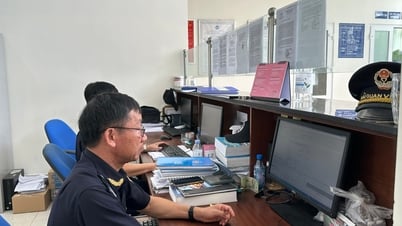



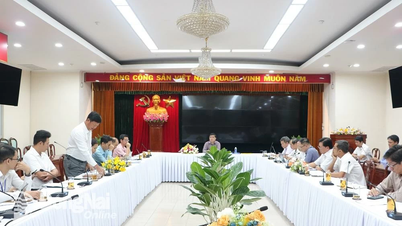

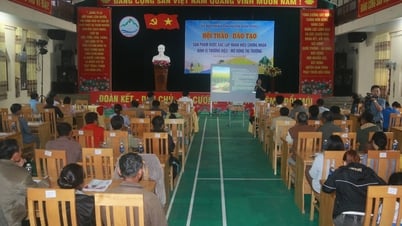











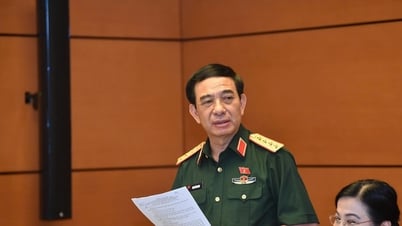







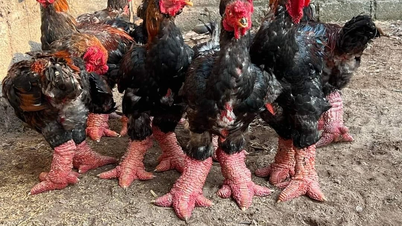












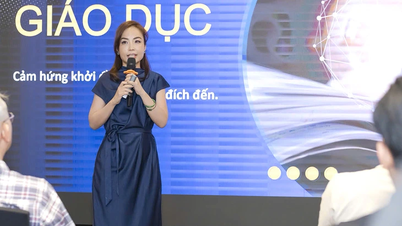
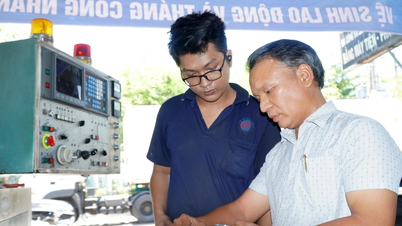












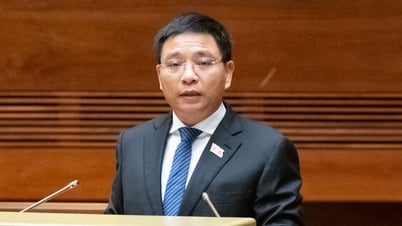






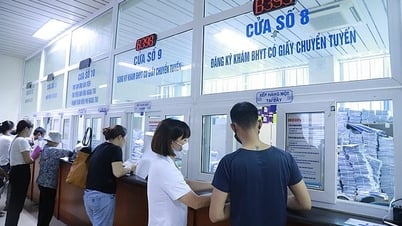














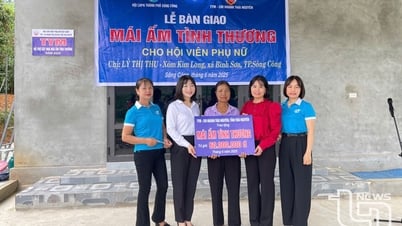
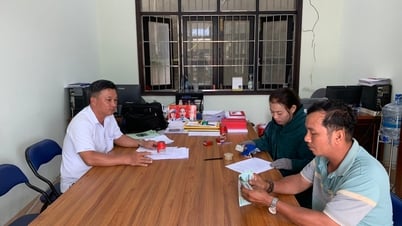
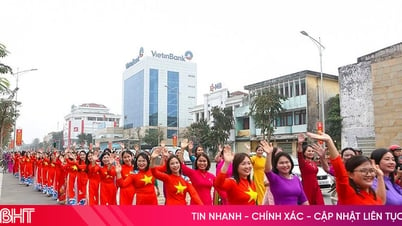


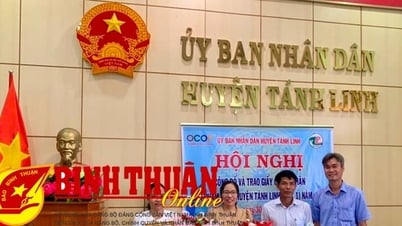


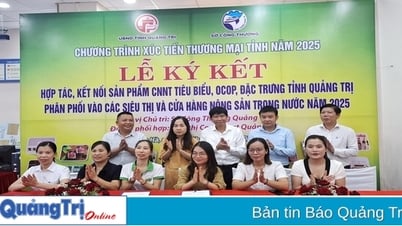








Comment (0)